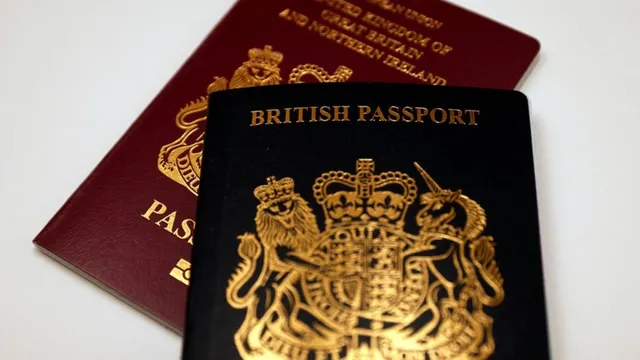- By Sakshi Srivastava
- Wed, 23 Jul 2025 12:46 PM (IST)
- Source:JND
World's Strongest Passport: Once considered the gold standard of global mobility, the US passport is now struggling to hold its place among the world's most powerful travel documents. In the latest Henley Passport Index for 2025, the United States has dropped to 10th place, its lowest ranking ever in the 20-year history of the index. Despite offering visa-free access to 182 destinations, the US now finds itself outranked by 33 countries, many of which are reaping the rewards of sustained diplomatic engagement and strategic visa deals.
The Henley Passport Index, compiled using exclusive data from the International Air Transport Association (IATA), assesses 199 passports against 227 destinations and is widely considered a benchmark of global travel freedom.
Who Stays On Top?
At the top of the list is Singapore, whose passport gives citizens visa-free access to 193 destinations—the highest of any country. Asian neighbors Japan and South Korea follow closely in second place, each offering access to 190 destinations. While the US struggles to maintain its global standing, Asian passports are solidifying their dominance, driven by what experts describe as “active and strategic diplomacy.”
The Most Powerful Passports For 2025
1. Singapore (193 destinations)
2. Japan, South Korea (190)
3. Denmark, Finland, France, Germany, Ireland, Italy, Spain (189)
4. Austria, Belgium, Luxembourg, Netherlands, Norway, Portugal, Sweden (188)
5. Greece, New Zealand, Switzerland (187)
6. United Kingdom (186)
7. Australia, Czech Republic, Hungary, Malta, Poland (185)
8. Canada, Estonia, United Arab Emirates (184)
9. Croatia, Latvia, Slovakia, Slovenia (183)
10. Iceland, Lithuania, United States (182)
What About UAE And US?
One of the most remarkable stories in the index is the rise of the United Arab Emirates (UAE). Over the last decade, the UAE has jumped 34 places, now tied at 8th with Canada and Estonia, offering visa-free access to 184 destinations. This is in stark contrast to the US, which has steadily declined since holding the No. 1 position in 2014.
At present, the US passport is tied with Iceland and Lithuania at 182 destinations, reflecting both a decline in mobility and what some experts call a lag in proactive foreign policy related to visa diplomacy.
New Visa Fees Could Push US Down Further
Adding to its passport woes, the US is introducing a new “visa integrity fee” of at least 250Dollars for international visitors requiring nonimmigrant visas. Critics argue the move could disincentivize reciprocal visa agreements and further erode the strength of the American passport. The US Travel Association has condemned the policy, calling it an unnecessary barrier to tourism and global engagement.
ALSO READ: From One-Person Town To 100-Acre Pizza Feasts: 10 Shocking Facts About USA
The Global Mobility Gap Widens
While top-tier passports now provide access to nearly 200 countries, others remain severely restricted. Afghanistan sits at the bottom of the Henley Index with visa-free access to just 25 destinations, followed by Syria (27) and Iraq (30)—a stark reminder of global inequality in travel freedom. That’s a mobility gap of 168 destinations between the world’s most and least powerful passports.
A Different Story
The Henley Index is not alone in tracking passport strength. Arton Capital, another major global mobility index, uses real-time data and ranks the UAE at No. 1 in its Global Passport Power Rank 2025, with a combined visa-free/visa-on-arrival score of 179. Spain follows in second with 176. The US, according to Arton’s system, does not make the top five either—highlighting how different metrics still point to a consistent decline in American passport power.
ALSO READ: 10 Finger-Lickin' Facts You Didn’t Know About KFC
Christian H. Kaelin, chairman of Henley & Partners, emphasized that the top-tier rankings are not automatic—they are earned. “Nations that proactively negotiate visa waivers and nurture reciprocal agreements continue to rise, while the opposite applies to those that are less engaged,” he said in a statement.

